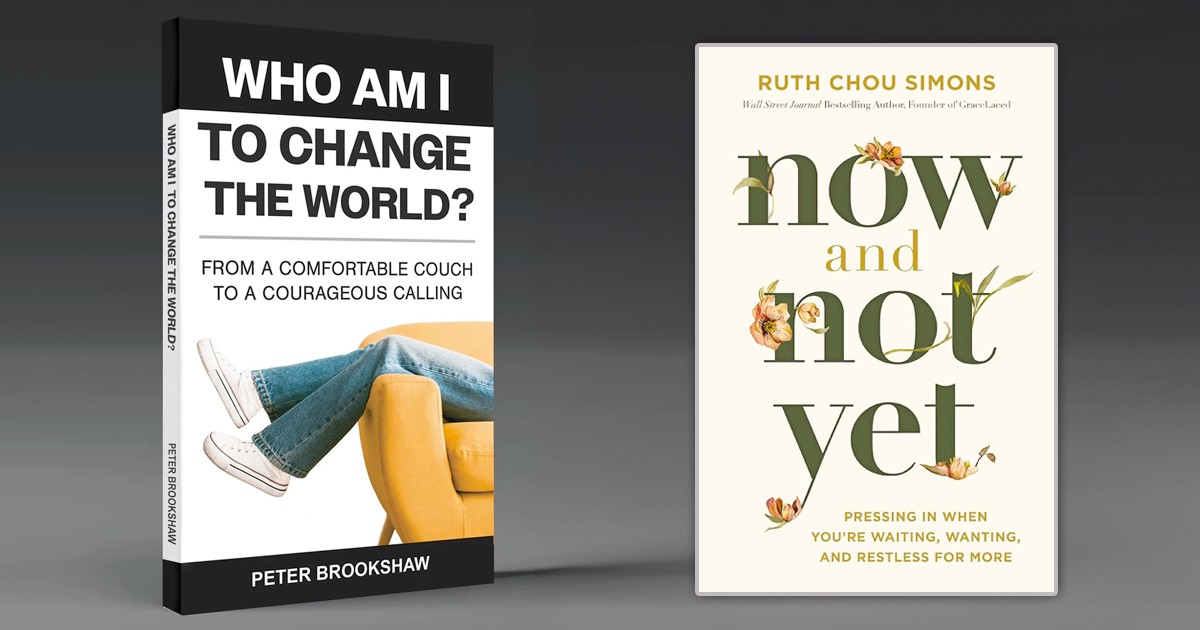NEW & NOTABLE
 Who Am I to Change the World?: From a Comfortable Couch to a Courageous Calling
Who Am I to Change the World?: From a Comfortable Couch to a Courageous Calling
BY MAJOR PETER BROOKSHAW
“If you want to change the world, you have to get off the couch,” says Major Peter Brookshaw, corps officer at Morley Salvos, Perth, in the Australia Territory. In his new book, Who Am I to Change the World?: From a Comfortable Couch to a Courageous Calling, Major Brookshaw encourages readers to put their faith into action and live out their God-given potential, becoming leaders in change in communities across the world.
According to Major Brookshaw, this book is about growth. It examines core principles to help readers identify areas of growth and development, and how they can incorporate these development practices into their lives and ministry settings.
“I believe that God has placed within everyone the capability to do something significant and life on earth is so short, so let’s start on it now,” writes Major Brookshaw for salvosonline.org.au. “The days are too limited to be coasting through the years without identifying how we can take the opportunities before us so we can grow far beyond where we are now in our spirit, mind and body capacities to make a positive difference in our world.”
Who Am I to Change the World? features practical applications, goal-setting exercises and check-ins throughout to help empower those who seek change.
“If you are feeling like your life has got into a bit of a rut, that you are living a life of mediocrity, instead of significance, then this book is for you,” says Commissioner Miriam Gluyas, territorial commander, Australia Territory. “I’m excited to think that this book might at least play some small part in empowering someone to grab hold of their potential and the opportunities to run like crazy to an amazing people-impacting finish line.”
Who Am I to Change the World? is available to purchase from Salvos Publishing.
A version of this report was originally published at salvosonline.org.au.
 Now and Not Yet: Pressing in When You’re Waiting, Wanting, and Restless for More BY RUTH CHOU SIMONS
Now and Not Yet: Pressing in When You’re Waiting, Wanting, and Restless for More BY RUTH CHOU SIMONS
In Now and Not Yet, author Ruth Chou Simons offers a compassionate and relatable discussion about how Christians can embrace the present moment amid life’s disappointments and monotony. It addresses the struggle that many people face when progress toward goals seems slow, and life’s current circumstances feel less than ideal. Chou Simons encourages readers to lean into their present season, even when it feels difficult.
Now and Not Yet helps readers discern God’s voice and plan, emphasizing that even in hard times, God is present and working behind the scenes. “The tension created by the gap between what we want our circumstances to be and how they really are is real,” she writes in the book’s introduction. “And sometimes we struggle to see the point of all we must endure in this current season. I know I do.”
Rather than seeking quick fixes, Chou Simons urges readers to confront their challenges with “unwanted right nows” and embrace the ways that God wants them to grow.
This book is for anyone feeling restless, unmotivated or eager to move on from their current situations. It serves as a valuable reminder that the waiting periods in life are not in vain, but rather part of each person’s spiritual journey.
Now and Not Yet is available to purchase on Amazon.
IN THE NEWS
New Research Shows What Canadian Christians Actually Believe
A recent study titled Still Christian? by Cardus and the Angus Reid Institute explores the current state of Christian beliefs in Canada and their alignment with traditional church teachings. It aims to explore whether self-reported religious activities correspond with Christian doctrines and how beliefs may vary between denominations.
It surveyed a total of 1,035 Canadian Christians, including Roman Catholics, mainline Protestants and evangelicals, and was divided into two parts. The first part, the Spectrum of Spirituality Index, assessed respondents’ religious beliefs and practices including belief in God, life after death, and how often they pray and attend church. The second part gathered respondents’ agreement with specific doctrinal statements, such as “God is all-powerful and all-knowing and cannot make a mistake,” which was agreed upon by 97 percent of respondents.
Still Christian? concludes that for most Christians, despite high levels of self-reported prayer, Bible reading and church attendance, there is a difference between personal beliefs and traditional teachings, and these beliefs vary by denomination. For instance, 89 percent of evangelicals believe in the Trinity, compared to only 51 percent of Catholics and 57 percent of mainline Protestants. Additionally, 65 percent of evangelicals disagree that Christian moral teachings should evolve with societal changes, whereas 72 percent of Catholics and 61 percent of mainline Protestants agree.
Among the denominations studied, evangelicals generally exhibit greater coherence with traditional church teachings compared to Catholics and mainline Protestants. The study also highlighted that younger Christians, regardless of denomination, seem more intentional with their faith practices than older generations.
Read the full report at www.cardus.ca/research/faith-communities/reports/ still-christian.










Leave a Comment